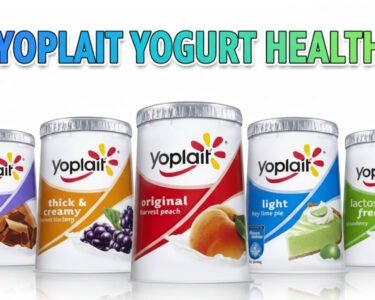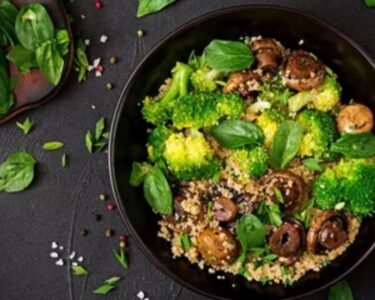Ulcerative colitis (UC) is a chronic inflammatory bowel disease (IBD) that affects both the colon and the rectum. Dietary changes, such as consuming or avoiding particular foods, can control the symptoms of ulcerative colitis (UC). Here the question arises What are the worst foods for ulcerative colitis? If you have ulcerative colitis, foods high in insoluble fiber, lactose, and sugars may worsen your symptoms.
This article provides detailed information on how to manage a diet plan for ulcerative colitis to get better results. The article offers a list of foods to steer clear of. Continue reading to learn about the foods that most usually trigger UC symptoms.
What are the worst foods for ulcerative colitis?
Two main categories of foods to avoid with ulcerative colitis can cause harm to your digestive health.
The first category consists of foods that cause short-term UC symptoms. These foods have the potential to trigger or worsen your UC symptoms during a flare-up. You may start to have more bowel movements or feel like you need to go to the bathroom more often.
The second category includes meals that have a longer-term impact on your condition. These foods that cause inflammation may not always cause symptoms to appear immediately after eating. However, they may worsen the damage to your colon’s lining over time, making it more difficult to control your UC.
List of Foods to Avoid with Ulcerative Colitis
What foods trigger colitis? Although diet cannot cause ulcerative colitis, several foods could increase inflammation or worsen symptoms. Some of these foods are processed, high-fat, or sugary, all of which cause inflammation and disturb normal bowel function. You can better control flare-ups if you know what are the worst foods for ulcerative colitis. If you have ulcerative colitis, you should stay away from these foods.
- Alcohol
- Carbonated & caffeinated beverages
- Whole Grains
- Nuts
- Lactose Products
- Red meat and processed meat
- Ultra-processed food
- Sugar-Added Product
- Sugar alcohols
- High-fat foods
- Insoluble fiber foods
- Seeds
- Gluten-containing foods
- Spicy foods
You don’t always have to avoid foods irritating your gut. It’s best to stay away from them during a flare-up. As your symptoms get better, you may be able to eat small amounts or cooked forms of these foods instead of raw ones. Read on for detailed information on why and what are the worst foods for ulcerative colitis.
1. Alcohol
Avoid alcoholic beverages, as they can exacerbate UC symptoms. Drinking alcohol can hurt the lining of the digestive system, make UC symptoms worse, and raise the risk of UC return. Alcohol can also interact badly with medications used to treat ulcerative colitis, such as mesalamine and cyclosporine.
Below are some examples of these alcoholic beverages.
- Wine
- Beer
- Cocktails
- Hard liquor
2. Carbonated & Caffeinated Beverages:
The risk of ulcerative colitis (UC) may rise with excessive use of carbonated and caffeine-based drinks. Understanding how these drinks affect your health might help you make a better ulcerative colitis diet plan.
Carbonated Drinks: Sodas and other carbonated drinks usually contain a lot of sugar and artificial sweeteners. Consuming high amounts of these chemicals may negatively impact gut health and lead to inflammation.
Caffeinated Drinks: Coffee and various teas, such as black tea, are examples of caffeine-rich drinks. These drinks can be harmful if taken excessively. As a stimulant, caffeine can make the bowels move faster, which can cause a sense of urgency or make you have more stools.
3. Whole Grains
Whole grain items are usually high in fiber, which can be difficult to digest if you have ulcerative colitis. A low-fiber diet in ulcerative colitis may help reduce the frequency and volume of bowel movements during a flare-up.
Here are some examples of whole grains:
- Barley
- Brown rice
- Buckwheat
- Bulgur
- Millet
- Oatmeal
- Popcorn
4. Nuts
If you have ulcerative colitis, nuts may be difficult to digest, making them one of the foods to avoid with colitis. This might be because they have a lot of sulfur in them. Eating easily digested foods that don’t irritate your intestinal lining is the best ulcerative colitis diet if you’re in the middle of an active flare. You can consume nuts again once your colon has recovered properly. In addition, high-fiber diets can offer some protective effects when not in a flare.
The following nuts should be avoided during the flare-up:
- hazelnuts
- pecans
- cashews
- almonds
- macadamia nuts
- peanuts
- pistachios
5. Lactose Products:
Dairy products such as cheese, yogurt, and milk contain a sugar known as lactose. A large number of individuals with ulcerative colitis are lactose intolerant, which means that they experience difficulty digesting lactose. People who are lactose intolerant may have the same symptoms as people who have UC, like diarrhea, bloating, and stomach pain.
Examples include:
- Milk
- Cheese
- Ice cream
Alternative Options: Consider lactose-free dairy products or alternatives such as soy milk, almond milk, lactose-free protein, and lactose-free yogurt.
6. Red meat and processed meat
Processed meats may cause the signs and symptoms of ulcerative colitis. They are also associated with an increased risk of developing colorectal cancer. Individuals who already have ulcerative colitis are at greater risk of having colorectal cancer. Therefore, we recommend limiting the consumption of these foods to avoid with ulcerative colitis to help prevent symptoms from worsening.
Following are some examples of these foods to avoid with colitis:
- Pork
- Sausage
- Hot Dogs
- Beef
Alternative Options: Try plant-based proteins like soy, beans, and lentils, or fresh chicken, turkey, and fish as alternatives.
7. Ultra-processed food
There is proof that consuming highly processed meals can harm the gut microbiome, raise inflammation, and weaken the gut’s defenses. According to some research, persons who use high-fiber and avoid ultra-processed foods in their ulcerative colitis diet claim to experience symptom relief and improvement in ulcers.
These ulcerative colitis foods to avoid are:
- Packaged Snack Foods
- Instant Meals
- Fast Food
- Breakfast Cereals
8. Sugar-Added Products:
When you eat foods or drinks that are high in sugar, it makes it harder for gut cells to grow and fix damage. A high-sugar diet may also adversely affect the balance of microorganisms in the stomach. High-sugar meals and beverages are therefore regarded as some of what are the worst foods for ulcerative colitis.
The following foods contain a significant amount of added sugar.
- Sugary drinks and sodas
- Sweets and candies
- Pastries
- Ice cream
- Cakes and cookies
- Yogurts with added sugar
- condiments such as ketchup and barbecue sauces
9. Sugar alcohols
Mannitol and sorbitol are examples of sugar alcohols found in sugar-free goods. These can worsen the symptoms of ulcerative colitis since the body is unable to digest them. Some fruits naturally contain sugar alcohols but in smaller quantities. Additionally, it is not advised to include such foods in your ulcerative colitis diet.
The following foods contain nonabsorbable sugars:
- Sugar-Free Candies
- Sugar-free gum and mint
- Sugar-Free Drinks
- Watermelon, peaches, pears, and plums are examples of fruits.
10. High-fat foods
Consuming meals high in fat might impact your digestive health, making the ulcerative colitis foods to avoid. You can control UC in remission and reduce your risk of flare-ups by understanding what are the worst foods for ulcerative colitis. In individuals with UC, a high-fat diet can hurt the intestine in several ways:
- Reduce Good Bacteria: A healthy gut microbiome is crucial for the prevention of infection and the digestion of food. Consuming a lot of fat might alter the ratio of “good” to “bad” microorganisms.
- Increased Bile Acids: A diet high in fat can raise the bile acid content in the colon. This can increase inflammation and cause damage to colon cells.
- Reduced Barrier of Defense: The gut lining typically prevents harmful viruses, bacteria, and other things from entering the body. Changes in the gut’s microbiome and infection-fighting cells could encourage the entry of these harmful invaders.
Following high-fat foods must be avoided:
- Butter
- cream
- fried foods
- coconut oil and other oils
- margarine
11. Insoluble fiber foods
Foods that are rich in insoluble fiber include skin-on fruits, whole grains, whole nuts, and fresh green veggies like broccoli. These could increase the frequency of bowel motions, the quantity of gas experienced, and the pain in the abdomen.
You should stay away from fruits and vegetables that:
- are either dry or uncooked.
- have a skin or peel
- are cruciferous, like cauliflower and broccoli
- having seeds that cannot be removed, like berries
12. Seeds
Seeds contain insoluble fiber that does not dissolve in water. This may increase the time it takes for food to pass through your digestive system, along with the frequency, volume, and intensity of your bowel motions.
The following seeds should be avoided:
- sesame seeds
- sunflower seeds
- pumpkin seeds
- flaxseed
- pine nuts
- wild rice
13. Gluten-containing foods
Wheat, rye, and barley contain gluten, a type of protein. Everyday meals such as bread and pasta often contain gluten, and prepared dishes such as soups, sauces, and condiments frequently incorporate it. People with stomach problems are more likely to be intolerant of gluten.
According to a 2014 research study, more than 66% of participants who tried a gluten-free diet said their IBD symptoms had improved.
Gluten-containing ulcerative colitis foods to avoid are:
- Wheat-based products
- Barley
- Cakes and cookies.
- Pizza
14. Spicy foods
These consist of hot peppers, chilies, and sauces. Spicy foods might cause or worsen a flare-up. However, there is limited research in this area. According to a 2019 analysis, capsaicin, the chemical that gives chilies their fiery flavor, may help decrease intestinal inflammation and IBD symptoms.
Additional Tips for Managing Ulcerative Colitis Symptoms
If you have UC, you should know what are the worst foods for ulcerative colitis. Also, the following simple guidelines will assist you in making better food choices and managing your ulcerative colitis diet.
- Instead of eating two or three large meals a day, eat four to six smaller ones.
- Avoid gulping and chew your meal until it is fully pulverized.
- Use a food journal to record the foods you eat each day. You can find apps that help you figure out how many calories and nutrients are in food so that you can meet your daily health needs.
- Use cooking methods like broiling, steaming, and poaching instead of frying.
- If you have diarrhea, drink plenty of simple water to stay hydrated.
- Avoid drinking using straws, which may cause bloating and gas if you swallow air.
Food Journal to Plan Your Ulcerative Colitis Diet
People with ulcerative colitis may benefit from keeping a food journal regularly. This will be helpful to better understand their condition and the foods to avoid with colitis.
Here is some essential information to include in your journal:
- The date the food is consumed
- the meals a person consumed, along with a list of condiments and sauces
- When did you eat the food?
- Any quick reactions, if noticed?
- flare-ups or worsening symptoms
Food diaries are especially useful for persons who want to know what are the worst foods for ulcerative colitis. Food journals can also be helpful if you want to expand your diets to include more kinds of foods. By consuming one meal at a time and documenting it, an individual can examine their symptoms and decide if the food is safe. For more understanding, a person can also discuss their food journal with a physician to make better ulcerative colitis diet.
Final Remarks:
Eating and drinking can be challenging when you have ulcerative colitis, as certain foods can trigger flare-ups. That’s why it’s crucial to know what are the worst foods for ulcerative colitis, especially for those with UC. Not everyone with ulcerative colitis will benefit from the same diet. However, identifying foods to avoid with ulcerative colitis that can worsen the symptoms could help in making a better diet plan.
An individual with UC may need to avoid foods such as lactose products, alcohol, gluten, spicy foods, and those high in sugar and fat. A food journal might be useful for identifying and limiting the foods that trigger UC symptoms. A doctor or nutritionist can also help someone select the most effective ulcerative colitis diet for them.
Frequently asked questions
What foods are best to consume if you have ulcerative colitis?
Depending on their dietary requirements and other medical issues, each person may have a different response. However, these foods generally have positive effects on bowel health:
- Omega-3-rich foods include walnuts and salmon.
- We recommend lean meats like chicken, turkey, and fish.
- foods low in fiber, such as bananas and cantaloupes
- Noncruciferous vegetables include squash and cucumbers.
- probiotic foods, such as yogurt
- refined carbohydrates, such as white pasta and potatoes
- Olive oil
- The herb turmeric
What are the worst foods for ulcerative colitis?
Foods that make ulcerative colitis worse are different for each person. However, you should avoid the following foods if you have ulcerative colitis:
- Alcohol
- Carbonated and caffeinated beverages
- Whole Grains
- Nuts
- Lactose Products
- Red meat and processed meat
- Ultra-processed food
- Sugar-Added Product
- Sugar alcohols
- High-fat foods
- Insoluble fiber foods
- Seeds
- Gluten-containing foods
- Spicy foods
Can someone who has ulcerative colitis eat pizza?
There are several pizza varieties that people can or cannot consume. The foods that cause ulcerative colitis symptoms vary from person to person. If someone has issues with both gluten and dairy, they might try eating a pizza with gluten-free dough and either no cheese or lactose-free cheese.
How Can You Manage Ulcerative Colitis in Collaboration With Your Physician?
Working closely with your medical team is essential to managing ulcerative colitis (UC). It is a long-term, complex illness. Your conditions will sometimes get worse and then get better. Maintaining contact with your doctor can help.



